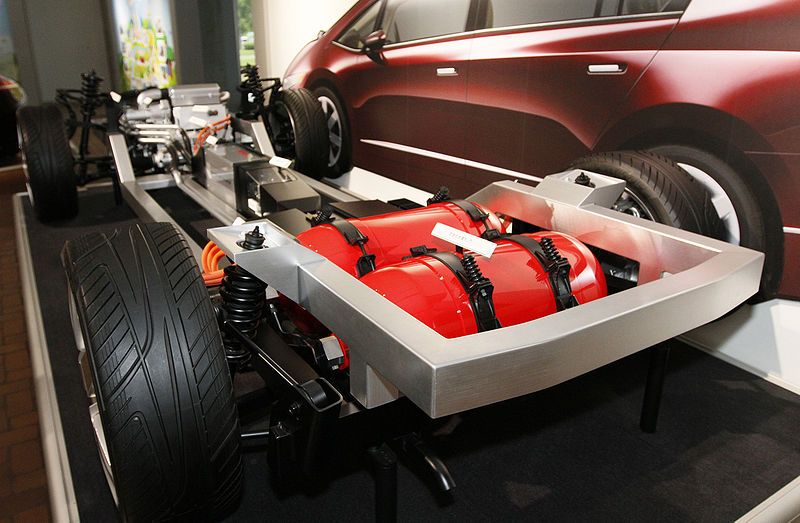First hydrogen fuel pump installed in Britain
Hydrogen powered vehicles are back on the agenda this week, as Honda opens the UK’s first hydrogen filling station in Swindon.

Hydrogen powered vehicles are back on the agenda this week, as Honda opens the UK’s first hydrogen filling station in Swindon. The company is releasing the FCX Clarity, a hydrogen powered car and the station is to complement the release. Filling pressures at both standard pressures will be available.
Just like electric fuel cell cars, hydrogen is simply used as an energy storage medium; its green credentials rely on the energy source used to create the hydrogen. It is therefore described as an energy carrier and not an energy source. As the gas does not occur naturally on earth, like fossil fuels or wind, it always needs to be created. This can be achieved using several different methods, predominantly methane, although wind to hydrogen plants are in development that rival these non-renewable sources.
Hydrogen powered cars have some key disadvantages that have held them back. Fuel cell based hydrogen cars are limited to use in areas that do no regularly fall below freezing temperatures and the cost of these fuel cells are in the hundreds of thousands of dollars. Hydrogen combustion engines are bulky, with the volumetric density of hydrogen far less than that of gasoline even after compression. The infrastructure required for hydrogen vehicles is also not in place, whereas electric cars can be charged from home, hydrogen needs a completely new pump system across the forecourts of the world.
Hydrogen is already being taken seriously in other areas of the world though. It is considered viable for taxis and busses, which can use a centralised point to fuel up. Some suggest however, that hydrogen is just too far away from useful implementation that it is better to focus on electric cars, Wired news for example say, “it will be 40 years or more before hydrogen has any meaningful impact on gasoline consumption or global warming, and we can't afford to wait that long. In the meantime, fuel cells are diverting resources from more immediate solutions.”
There are other positives to hydrogen that reach outside the global warming debate however. The clean running of a hydrogen vehicle means it would significantly decrease city particulate pollution, although electric vehicles also share this advantage. They alos offer good performance comparable to gasoline cars. Honda’s Thomas Brachmann says, "Hydrogen fuel cell technology is the ultimate transport solution; meeting environmental demands but also delivering the range and performance that customers expect. The cooperation on this project between vehicle manufacturers like Honda, infrastructure providers like BOC and the public sector can be a blueprint for future development."


